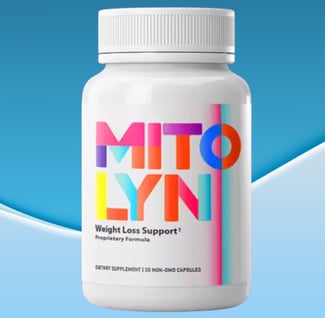The Link Between Stress and Low Energy: How to Break the Cycle
Discover the powerful link between stress and low energy, and learn how to break the cycle naturally. From science-backed tips to boost mitochondrial health to a natural solution like MitoLyn, this blog will help you reclaim your energy and vitality. Say goodbye to fatigue and hello to a more energized you!
Mimir Odin
2/26/20255 min read


The Link Between Stress and Low Energy: How to Break the Cycle
Do you ever feel like no matter how much you sleep or how many cups of coffee you drink, you’re still dragging through the day? You’re not alone. In our fast-paced, always-on world, stress and low energy have become an epidemic. But what if the key to breaking free from this exhausting cycle lies in understanding the deep connection between stress and your body’s energy production?
In this blog, we’ll dive into the science behind stress and fatigue, explore practical strategies to combat stress-related low energy, and introduce a natural solution to help you feel revitalized and ready to take on life. Let’s get started.
The Science Behind Stress and Low Energy
Stress isn’t just a mental or emotional experience—it has a profound impact on your physical body, especially your energy levels. Here’s how stress drains your energy at the cellular level:
1. Stress Hormones and Your Mitochondria
When you’re stressed, your body releases cortisol, often called the “stress hormone.” In small doses, cortisol is helpful—it gives you the energy to handle immediate challenges (think fight-or-flight response). However, chronic stress keeps cortisol levels elevated for long periods, which can damage your mitochondria.
Mitochondria are the powerhouses of your cells, responsible for producing ATP (adenosine triphosphate), the energy currency your body needs to function. When mitochondria are impaired, your energy production drops, leaving you feeling fatigued and sluggish.
2. Oxidative Stress and Free Radicals
Chronic stress also increases the production of free radicals—unstable molecules that damage cells through a process called oxidative stress. Your mitochondria are particularly vulnerable to this damage. Over time, oxidative stress can weaken mitochondrial function, leading to lower energy levels and a host of other health issues.
3. Poor Sleep and Recovery
Stress and sleep are deeply interconnected. High stress levels can make it difficult to fall asleep or stay asleep, and poor sleep, in turn, increases stress. This creates a vicious cycle: stress disrupts sleep, lack of sleep lowers energy, and low energy makes it harder to cope with stress.
How to Break the Cycle of Stress and Low Energy
The good news is that you can take steps to reduce stress, support your mitochondria, and boost your energy naturally. Here are 7 science-backed strategies to help you break the cycle:
1. Prioritize Sleep
Sleep is your body’s time to repair and recharge. Poor sleep not only leaves you feeling tired but also exacerbates stress and impairs mitochondrial function.
- Tips for Better Sleep:
- Stick to a consistent sleep schedule, even on weekends.
- Create a calming bedtime routine, such as reading or taking a warm bath.
- Avoid screens (phones, TVs, laptops) at least an hour before bed.
- Keep your bedroom cool, dark, and quiet.
2. Move Your Body
Exercise is one of the most effective ways to combat stress and boost energy. Physical activity increases blood flow, reduces cortisol levels, and enhances mitochondrial function.
- Tips for Incorporating Exercise:
- Start with low-impact activities like walking, yoga, or swimming.
- Aim for at least 30 minutes of moderate exercise most days of the week.
- Find activities you enjoy to make exercise a sustainable habit.
3. Eat for Energy
Your diet plays a crucial role in supporting mitochondrial health and energy production. Focus on nutrient-dense foods that provide the vitamins, minerals, and antioxidants your mitochondria need to thrive.
- Top Foods for Mitochondrial Health:
- Leafy greens (spinach, kale, Swiss chard)
- Nuts and seeds (almonds, walnuts, flaxseeds)
- Lean proteins (chicken, fish, tofu)
- Whole grains (quinoa, brown rice, oats)
- Antioxidant-rich fruits (blueberries, oranges, pomegranates)
4. Practice Stress-Relief Techniques
Managing stress is key to breaking the cycle of low energy. Incorporate mindfulness practices into your daily routine to lower cortisol levels and improve your resilience to stress.
- Effective Stress-Relief Techniques:
- Meditation: Even 5-10 minutes a day can make a difference.
- Deep breathing exercises: Try the 4-7-8 technique (inhale for 4 seconds, hold for 7 seconds, exhale for 8 seconds).
- Yoga: Combines physical movement with mindfulness for double the benefits.
- Journaling: Write down your thoughts and feelings to process stress.
5. Stay Hydrated
Dehydration can worsen fatigue and make it harder for your body to cope with stress. Aim to drink at least 8 glasses of water a day, and more if you’re active or in a hot climate.
6. Limit Stimulants
While caffeine and sugar may provide a quick energy boost, they often lead to crashes that leave you feeling more tired than before. Opt for natural energy boosters like green tea or fresh fruit instead.
7. Support Your Mitochondria
Your mitochondria are at the heart of your energy production. By supporting their health, you can combat stress-related fatigue and feel more energized.
Introducing MitoLyn: Your Natural Energy Solution
If you’re looking for an extra boost to break the cycle of stress and low energy, MitoLyn might be the answer. MitoLyn is a science-backed dietary supplement designed to support mitochondrial health and enhance cellular energy production.
How MitoLyn Helps:
- Boosts ATP Production: MitoLyn’s ingredients, like CoQ10 and L-Carnitine, help your mitochondria produce more energy, so you feel revitalized throughout the day.
- Reduces Oxidative Stress: Antioxidants in MitoLyn protect your cells from damage caused by stress and free radicals.
- Supports Recovery: By improving mitochondrial function, MitoLyn helps your body recover faster from stress and fatigue.
Key Ingredients in MitoLyn:
- CoQ10: A powerful antioxidant that supports mitochondrial function and energy production.
- L-Carnitine: Helps transport fatty acids into mitochondria, where they’re converted into energy.
- PQQ (Pyrroloquinoline Quinone): Promotes the growth of new mitochondria and protects existing ones.
- B Vitamins: Essential for converting food into energy and reducing fatigue.
Why Choose MitoLyn?
- Made with 100% natural, high-quality ingredients.
- Safe and effective for long-term use.
- Designed to address the root cause of low energy—your mitochondria.
Final Thoughts
Stress and low energy don’t have to control your life. By understanding the link between the two and taking proactive steps to support your body, you can break the cycle and reclaim your vitality. From prioritizing sleep and exercise to nourishing your body with the right foods, small changes can make a big difference.
And if you’re looking for a natural way to enhance your energy levels, consider trying MitoLyn. It’s more than just a supplement—it’s a tool to help you feel your best, even in the face of stress.
Ready to take the first step toward better energy and less stress? Learn more about MitoLyn and how it can support your journey to wellness.






Wellness
Your destination for Wellness, heath & Fitness, Your journey start here
Trust
contact@eleganbeautybrand@gmail.com
© 2024. All rights reserved.


